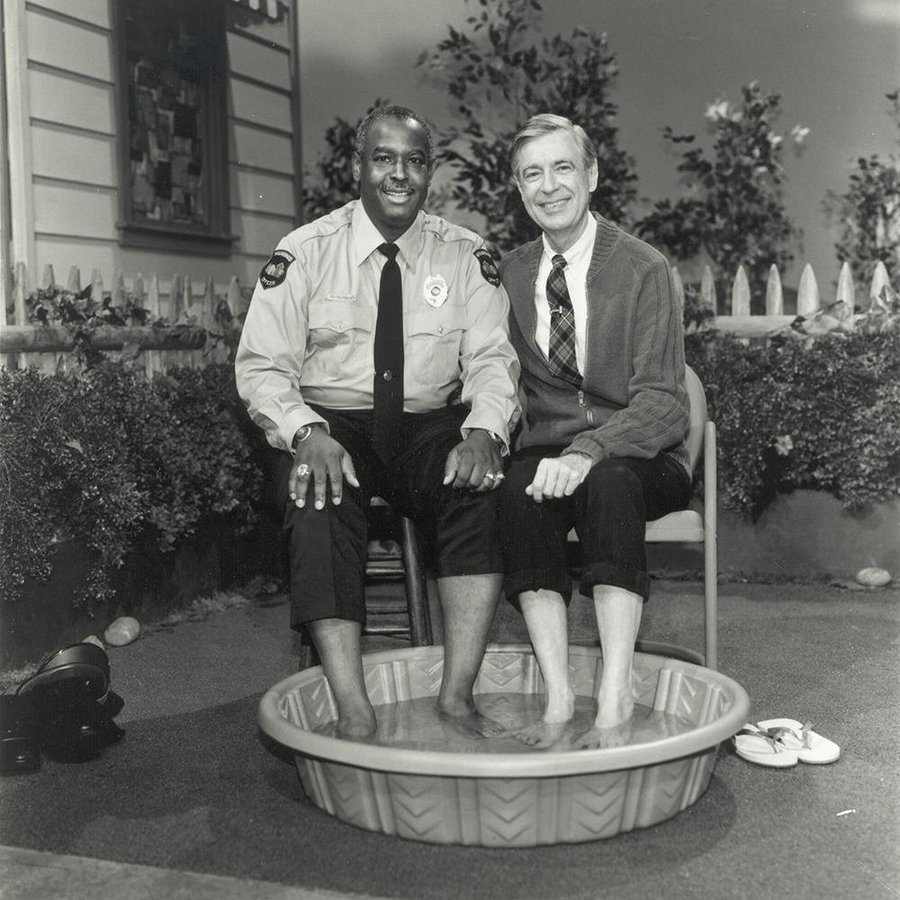Officer Clemmons was one of the first reccuring black characters in a children's tv program, but initially, actor Francois Clemmons was reluctant to take the role because he had grown up in the late 60's white America, and for him, cops were not people to be trusted, or imitated. But when Fred Rogers started talking about the "children needing helpers and the positive influence {he} could have on young children," Francois decided to take the role.
He then went on to play officer Clemmons for the next thirty years.
Here is the full episode. The scene with Fred and Officer Clemmons starts at 5:54 and runs till 10:15. It's worth the watch.
What I love about this scene is that Fred Rogers, with such acute purpose, is breaking down the social and racial barriers that so many white Americans of his time worked so hard to keep, that the African American people were nothing like white America and should therefore be forever segregated.
So Fred Rogers asks Officer Clemmons to sing, giving him skill and beauty and craft, something that didn't fit into the single story of who and what black America was.
Then he invites him to sit by the pool with him - a taboo for many white Americans. And when they've finished, Fred Rogers washes Officer Clemmons' feet, showing humility and honor to a black man in a way that aggressively (yet gently) contradicted the images and popular opinions of the day - white's serving blacks, are you kidding!?
Lastly, he softly asks, "Did you ever take a bath in a little pool like this, when you were a boy?"
"I sure did," Officer Clemmons responds. And this is perhaps my favorite part because suddenly, Officer Clemmons, a black man who was fully and completely different, is suddenly relatable, he's suddenly a child who cooled off in a plastic pool on hot summer days, just like the white kids. Suddenly, all the kids and parents all across American, no matter their color, their religion, or their age had something in common with Officer Clemmons. Suddenly, and subtley, Officer Clemmons is more than a simple stereotype, he's human.
"To say that he didn't know what he was doing, or that he accidentely stumbled into integration or talking about racism or sexism, that's not Mr. Rogers."
There are many ways to say, "I love you" Office Clemmons sang, but for Fred Rogers they all boiled down to one: seeing and treating people with dignity, not matter how they looked or talked or lived. He just loved them.
And he encouraged us to do the same.
For more on . . .
-N- Stuff : Mr. Rogers and the Power of Persuasion : The History of Mr. Rogers Sweaters

